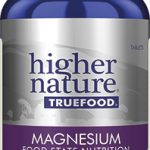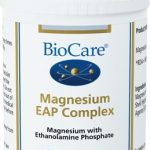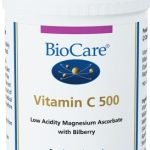Obviously there’s a myriad of minerals that are beneficial to the body and your overall health and wellbeing, but – when you take a look at what it does for your body – magnesium must be undoubtedly among the most abundantly necessary. So much so, in fact, it’s needed as a co-factor for more than 300 separate biochemical reactions in the human body. That covers the likes of maintaining a strong heartbeat, sustaining healthy nerve function, growing and building bones and muscles, preserving electrolyte balance, ensuring normal blood-clotting, supporting hormonal health and keeping the immune system operating exactly as it should.
Moreover, scientific research is increasingly discovering that magnesium may be capable of alleviating the symptoms of many common ailments and conditions. Exactly what sort of magnesium benefits are we talking about here? Well, study results suggest that the mineral’s multitude of functions and properties within the body ensures it can help with problems ranging from cardiac arrhythmias to cardiovascular disease; chronic fatigue to diabetes; emotional and physical stress to high blood pressure; migraines to osteoporosis and premenstrual tension to restless leg syndrome.
In which case, should you be interested in increasing your magnesium intake – via dietary sources or, especially, natural supplementation – it’s as well to be aware of the various types of magnesium that are available and used within supplements.
An A-Z of magnesium types
The following ‘types’ of magnesium – often in ‘chelated’ compound form; thus, with one or more elements of some kind to ease its absorption in the body – all tend to crop up in supplements produced for the benefit of one’s health, while several of them are relied on for a good number of other uses too:
- Magnesium amino acid chelate – the first in our list is a compound that’s a mineral chelate comprising magnesium oxide and a form of amino acid (an arginate, aspartate, glycine or lactate and so on); magnesium in this form tends to be most commonly paired with aspartate or arginate as the amino acid
- Magnesium ascorbate – actually a form of Vitamin C (non-acidic buffered), this compound’s a great source of magnesium too, not least because it enables the body to consume both the vitamin and the mineral in a way that’s easy on the gastrointestinal system; thus, making for effective absorption of both the vital nutrients
- Magnesium carbonate – commonly referred to as chalk, this type’s often used by gymnasts and weightlifters to aid grip and it should be noted that, when consumed in high doses, magnesium carbonate tends to act as a laxative; when consumed, its bioavailability rate (the amount that’s assimilated by the digestive system and so reaches systemic circulation so it can be used for cellular activity and benefit health) is around 30%
- Magnesium chloride – again, offering a decent level of bioavailability, this type of magnesium is fairly moderate in its concentration (that is, how much of the compound is actually made up of magnesium); it’s often used in industry, not least in the manufacturing of paper, fireproof agents and certain kinds of cement
- Magnesium citrate – what this form of the mineral may lack in concentration it arguably makes up for in bioavailability (admirably high at 90%); it’s created from the magnesium salt that occurs naturally in citric acid (present in citrus fruits) and is often used to treat constipation – recent research also points to its potential in preventing the development of kidney stones
- Magnesium lactate – another magnesium type often used to address digestive complaints and disorders, this one is probably best avoided, however, should you suffer with a kidney-related problem; again, its concentration is, at best, moderate, but its bioavailability high
- Magnesium orotate – produced via mineral salts derived from orotic acid, this type sees magnesium paired with an orotate, a substance that animals and plants both rely on to create DNA (the molecule that carries the genetic instructions for growth, development, functioning and reproduction of all organisms)1; orotates too are excellent at penetrating cell membranes, thereby ensuring magnesium can be successfully delivered to the cell’s mitochondria and nucleus2 – exactly where it needs to be to benefit the cell and overall health, as such, this form makes for a highly absorbable kind of magnesium
- Magnesium oxide – commonly referred to as ‘magnesia’, this form of the mineral (which sees it paired with at least one oxygen atom and one or more other kinds of atoms) offers, like magnesium carbonate, laxative properties and is also commonly used to treat the symptoms of acid reflux; it’s highly concentrated, but with low bioavailability (around just 4%)
- Magnesium phosphate – a salt containing both magnesium and phosphorous (along with oxygen), magnesium phosphate, when consumed in supplement form, is believed to be beneficial for treating the effects of fibromyalgia3 and sustained heart damage (heart attack or heart disease) and to regulate cholesterol levels; most essentially though, the body requires magnesium phosphate to successfully maintain bone health
- Magnesium sulphate – better known as Epsom salt, this compound is, in fact, inorganic and with an elemental concentration of only 10% and a relatively low bioavailability level, it doesn’t pack the cellular-delivery punch of some of the others4; it’s made up, as you may have worked out, of magnesium, oxygen and sulphur.
Magnesium supplements
So, abundant though magnesium may be in both the body and healthy – and especially organic – foods (such as vegetables including spinach, chard and black beans, as well as yogurt and nuts and seeds like almonds and pumpkin seeds), it may be that you feel you want to try boosting your magnesium intake. Especially if you’re struggling to include as many of the aforementioned foods in your diet as you might.
In that case then, natural supplementation is the obvious option to turn to for consumption of this all-important mineral. Along with all the other products you’ll see listed in our ‘Magnesium’ section, these three magnesium supplements are available through us at The Finchley Clinic:
True Food Magnesium – designed to make up for the dietary magnesium intake that may not be possible due to modern farming methods and environmental factors like pollution, this supplement, with its high bioavailability, is ideal too for compromised digestion owing to busy lifestyles
Magnesium EAP – a good source of highly bioavailable magnesium; useful for individuals with malabsorption and poor levels of the mineral because the supplement’s magnesium form (magnesium phosphate) aids its transportation through the body.
Vitamin C with Magnesium – great for people requiring a citrus-free (as well as a bioavailable and readily absorbable) source of magnesium and/ or Vitamin C, this product also comprises bilberry extract, which in turns contains flavonoids (acting as effective antioxidants).
References:
- Classen H. G. ‘Magnesium orotate–experimental and clinical evidence’. Rom J Intern Med. 2004; 42 (3): 491-501.
2. Zeana C. ‘Magnesium orotate in myocardial and neuronal protection’. Rom J Intern Med. 1999 Jan-Mar; 37 (1): 91-7.
3. London M. ‘The Role of Magnesium in Fibromyalgia’. Massachusetts Institute of Technology. http://web.mit.edu/london/www/magnesium.html. 2007.
4. Albrecht E., Kirkham K. R., Liu S. S. and Brull R. ‘The analgesic efficacy and safety of neuraxial magnesium sulphate: a quantitative review’. Anaesthesia. Feb 2013; 68 (2): 190-202.



